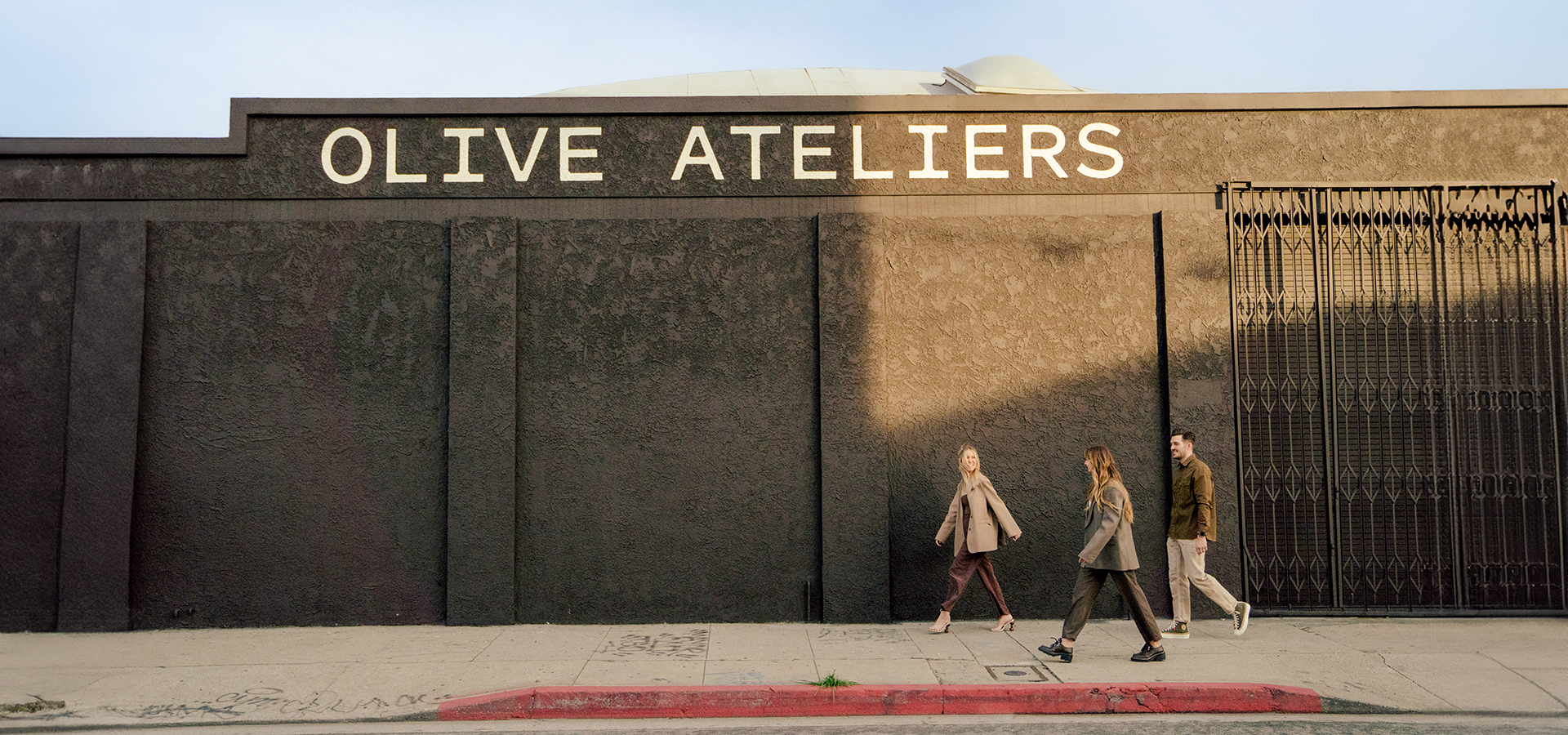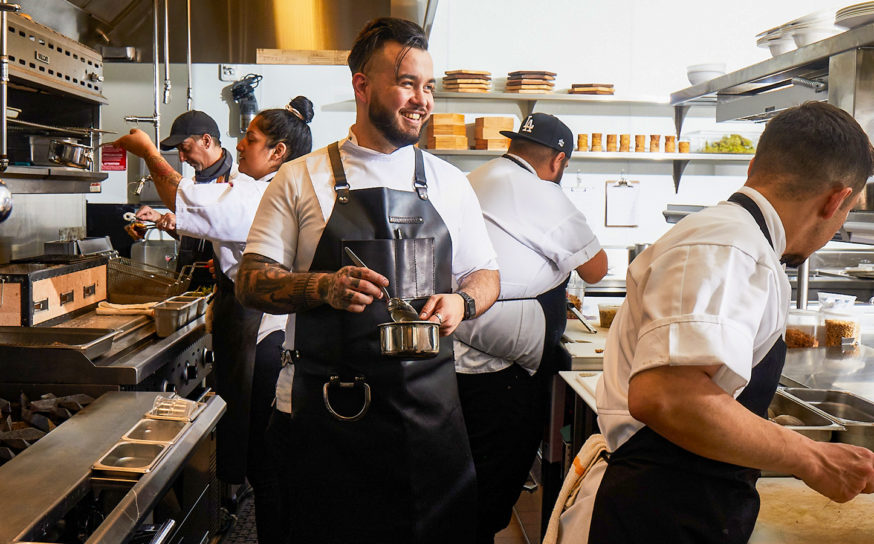Objects of Affection: Olive Ateliers Seeks Pieces With a Past
A Los Angeles–based lifestyle retail brand sources rare and one-of-a-kind objects and offers up design hacks.
-
CategoryHomes + Spaces, Vintage
-
Written byJennie Nunn
-
Photos byBailey Templeton
-
AboveOlive Ateliers’ founders outside their Los Angeles emporium
Three years ago, spouses Kendall and Ben Knox and their business partner Laura Sotelo launched Los Angeles–based Olive Ateliers. The endeavor stemmed from a combined love of objects—but not just any objects. “Olive Ateliers was born from an adoration of what we like to call objects with ‘old souls’,” says Kendall. “Objects that are a little rough around the edges, that are stoic, charismatic, and that have a story to tell. We set out to build a brand that inspires curious living by creating access to one-of-a kind objects, awe-inspiring spaces, and innovative experiences.”
Offering well-edited global wares ranging from confit jars and antique stone troughs to salvaged wooden stools and ladders, the home retail importer and lifestyle brand hosts online drops and in-person shopping four days a week at their 22,000-square-foot flagship atelier in the Arts District (Wednesday-Saturday; 10am-4pm.) Kendall shares what to look for when shopping for vintage home items, where they procure their prized pieces, and how to create a look she calls “new-stalgia.”
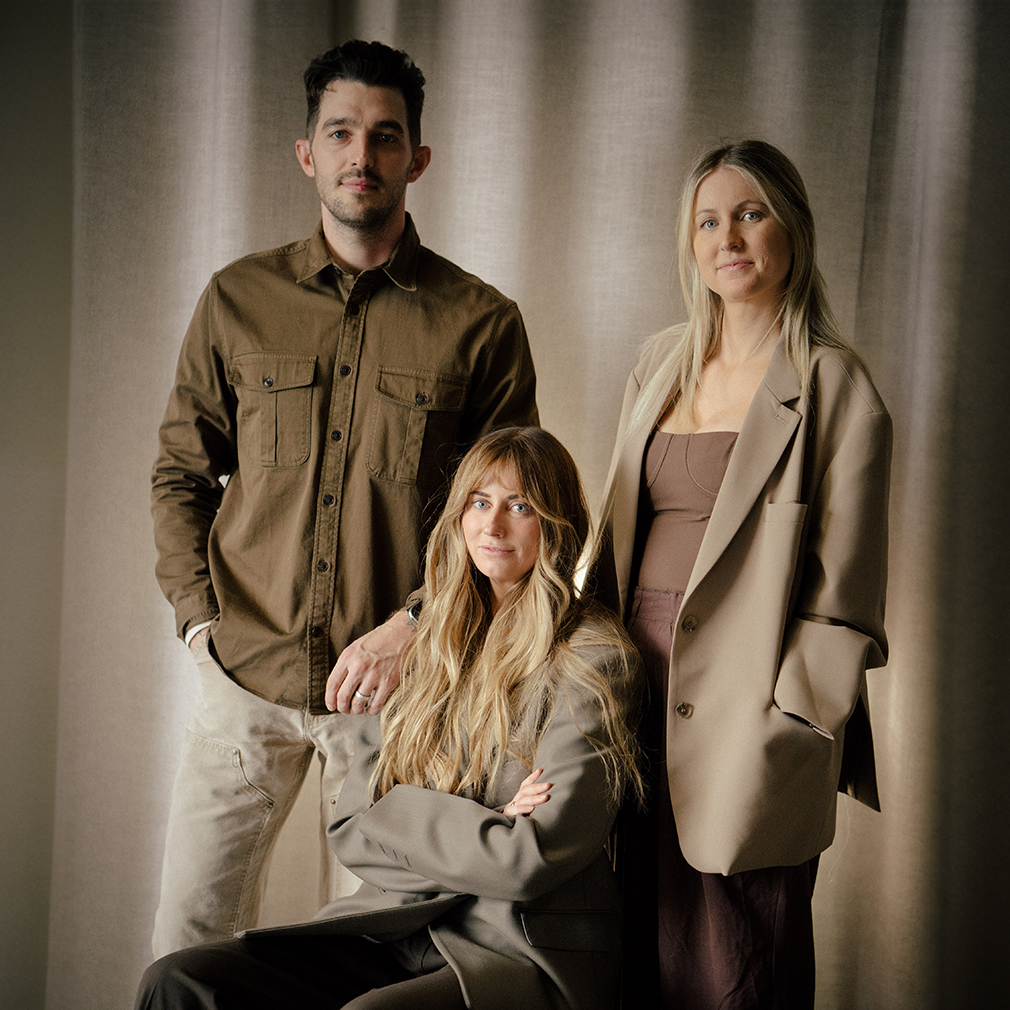
We love the company and the concept. Tell us about the types of pieces you look for and the curation process.
KK: “We source and curate objects that embody that of an old soul, or are in fact, vintage or antique by definition. We tend to gravitate towards objects made with natural materials, with a story to tell. While we’re particularly known for our assortment of pottery and decor, we also source a wide range of furniture, sinks, troughs and other various unique objects such as rare architectural salvage pieces and more.”
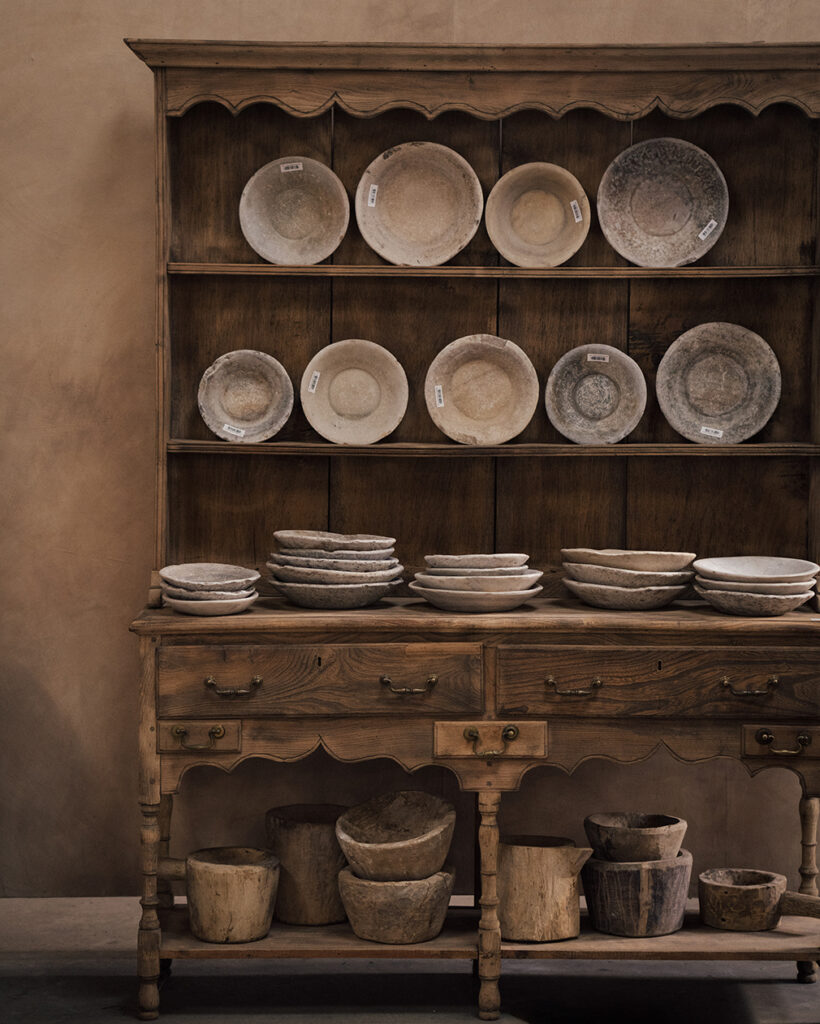
Where do you find the items and what’s the influence?
KK: “We source from all over the globe, most specifically Turkey, India, France, Belgium, Morocco, Indonesia, China, and more. We are drawn to the various vessels and pottery from Turkey, most of which were previously used to store olive oil, grains, and other food supplies. We’re also hugely influenced by the South of France and the various garden decor, vintage furniture and decor [that is] often salvaged from old workshops and apothecaries and collected or sold via local ‘brocante,’ or flea markets.”
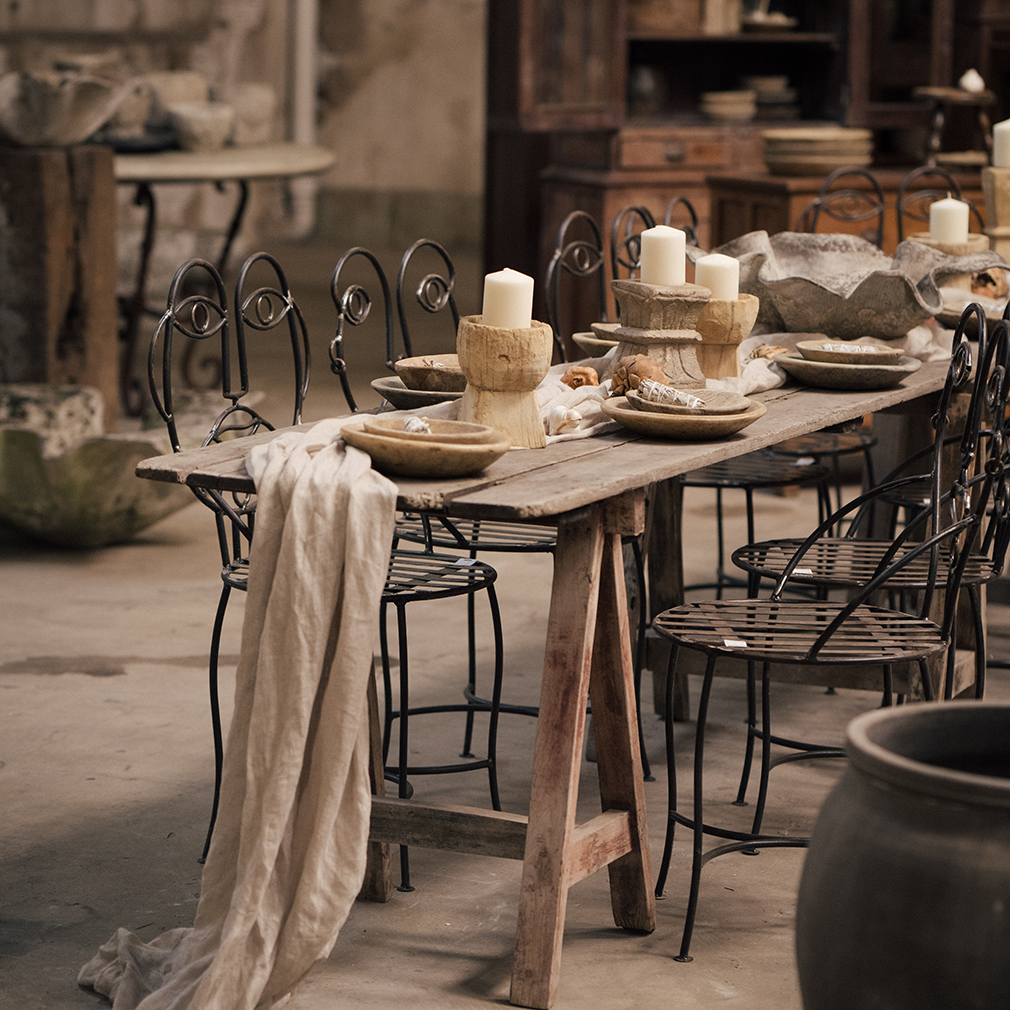
What are three of your favorite items?
KK: “A year or so ago we were lucky enough to source and sell a handful of antique marble mortars from Turkey, each with a unique scalloped edge and matching pestle. The artisan has since passed, and the items are no longer being produced, which makes them an incredibly rare find and special piece to own. The Skinny Elm bench is another of our crowd pleasers, collected from various schoolhouses in rural China. If we had to pick a third, it might be our vintage and antique limestone troughs, [which are] commonly converted into fountains and planters but previously were used to purify and store water and as food troughs for animals in rural Indonesia.”
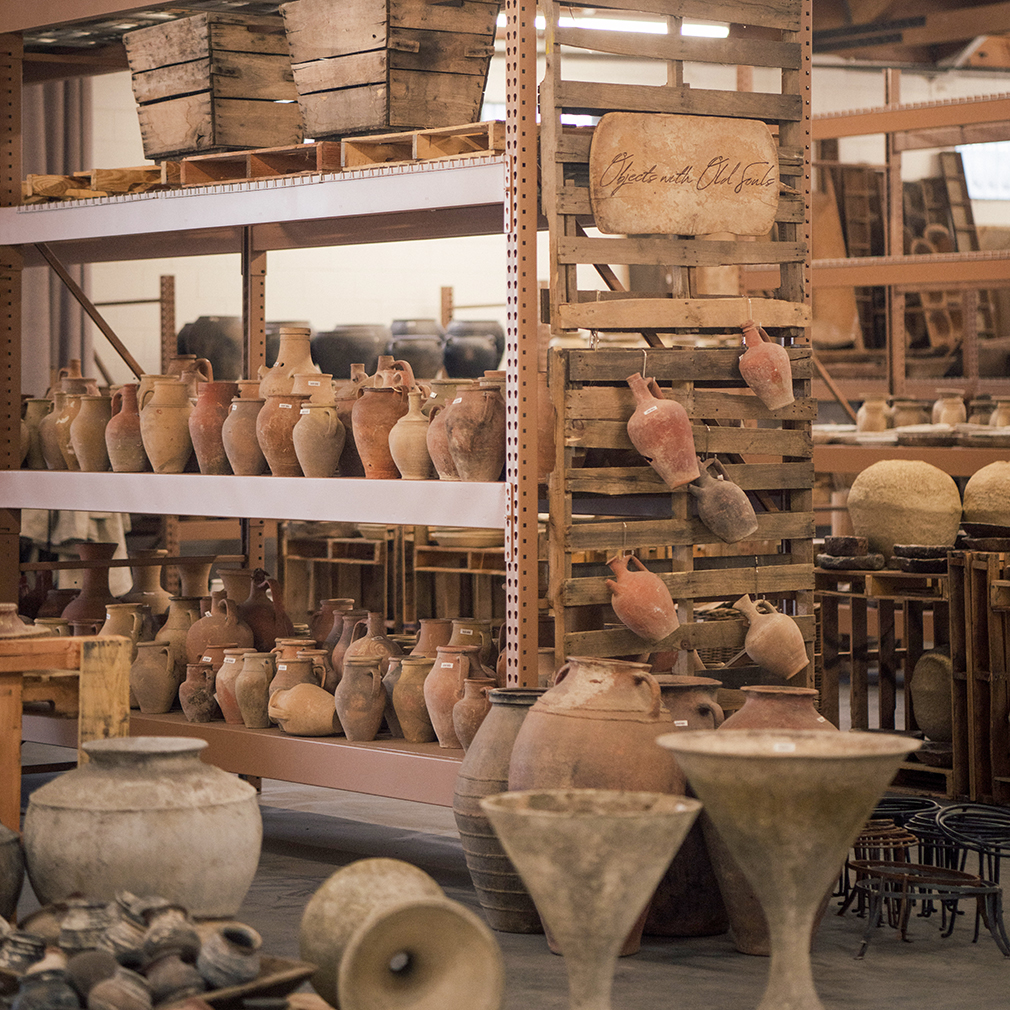
Your top vintage home décor shopping tip?
KK: “Let the object choose you. The best part about shopping for vintage or pre-loved home decor is that it’s not about needing to follow a trend. It’s about being drawn to the ‘as is’ aesthetic of the piece. Embrace the imperfection; a little chip or crack is simply a sign of a life well-lived.”

What do you love most about your job?
KK: “Sharing the stories and past lives of the objects is our favorite part. We are so honored to act as a mouthpiece of sorts, to share the history and origin story of these objects, and encourage curiosity from our community.”
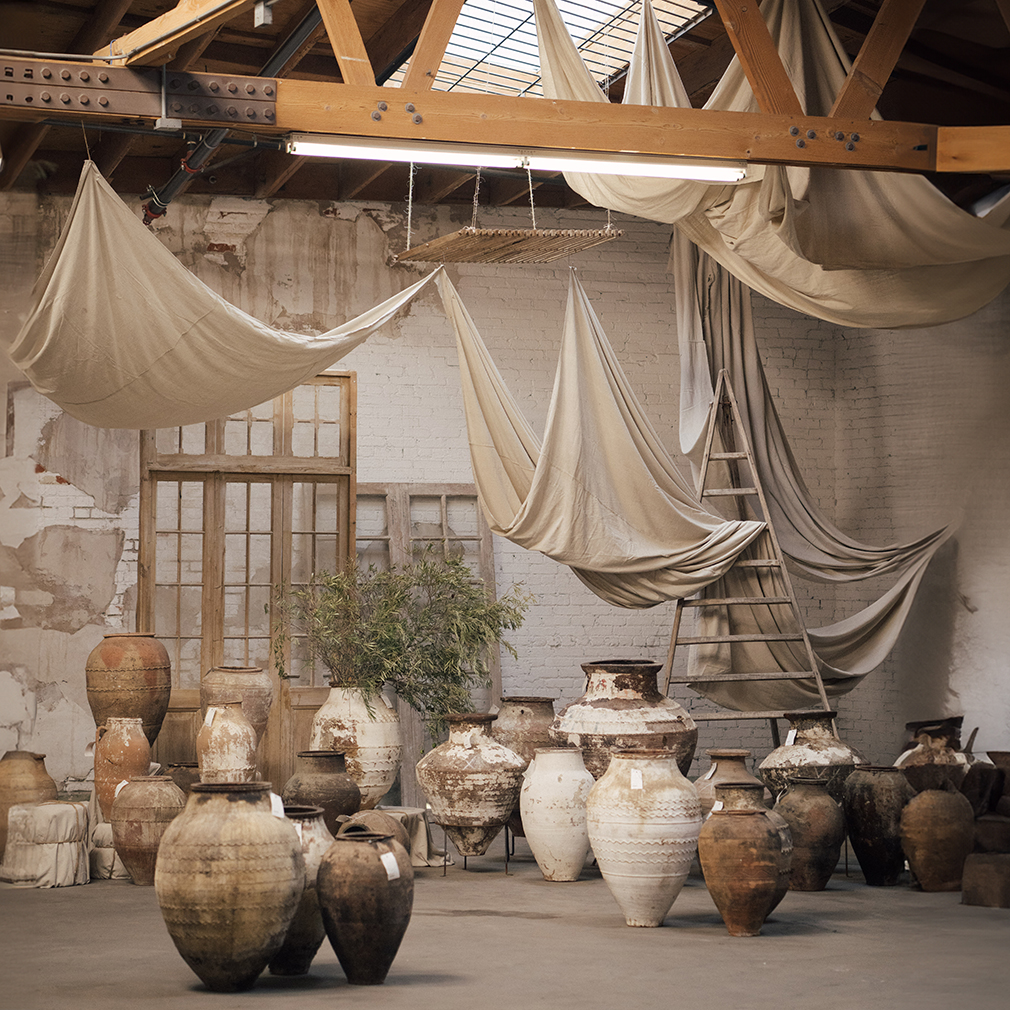
How do we hear about drops and what’s the best way to keep up with Olive Ateliers?
KK: “We’re constantly expanding our sourcing capabilities to new regions, expanding access to our objects, and striving to inspire curious living every step of the way. Sign up for our email and text alerts to stay in the know.”
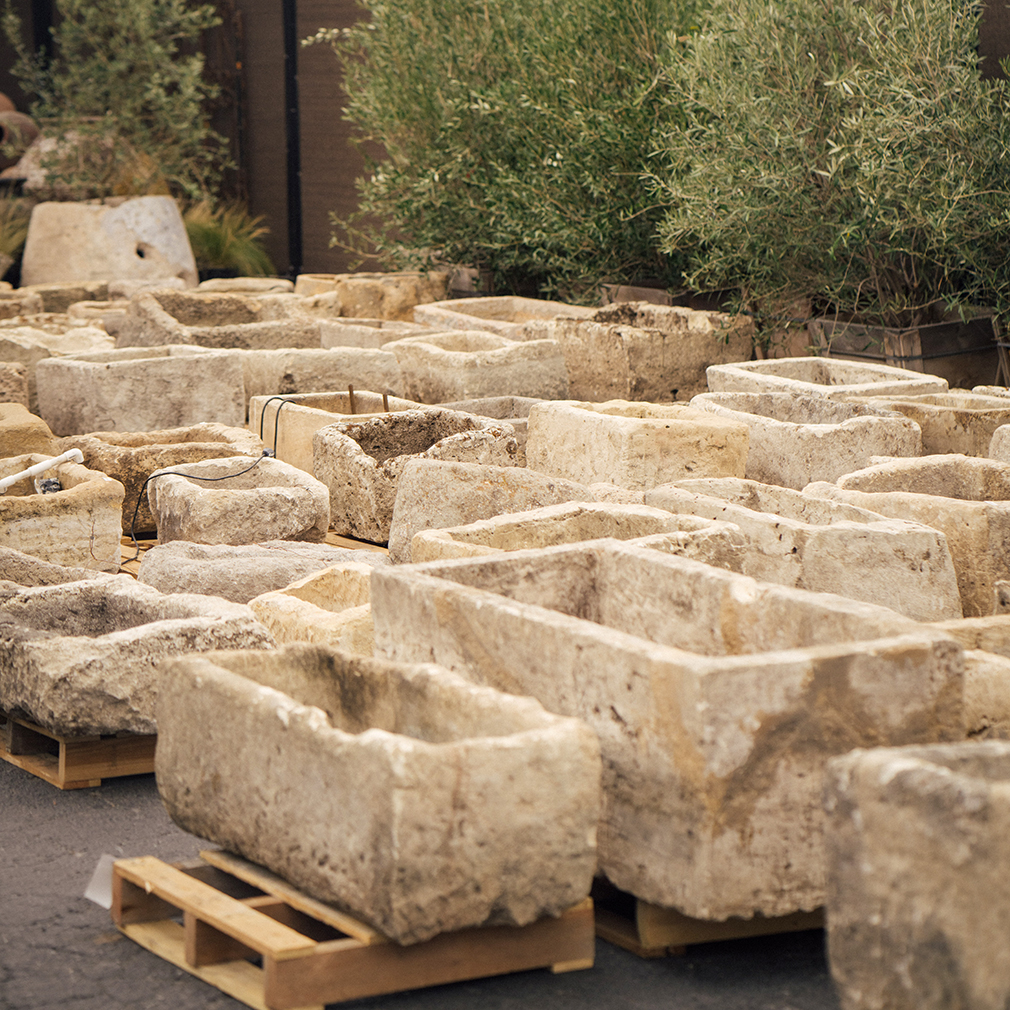
Olive Ateliers’ Design Hacks
- Leave It Alone
“Let them be. You never need to overcomplicate an object of age; think of it as a piece of art.”
- Use Natural Elements and Give It New Life
“A foraged branch or in-season provision is always a good idea. To style our vintage vessels with live stems, simply insert a glass votive inside to protect the integrity of the vessel. If you want to use a breadboard or bowl as servingware, line it first with parchment paper.”
- Create Your Own Spin on Mixing Old With New
“Don’t be afraid to lean into ‘new-stalgia.’ A vintage or of-age object can very easily warm up a modern, clean space without needing to convert your entire home into an overly rustic or ‘lived-in’ aesthetic.”
Get Your Creative Fix With These Outdoor Art Experiences Throughout the Golden State
Murals, sculptures and lights.
Hey, Weekend: Merced—Gateway to Yosemite
A new hotel and restaurant put Merced on the map just in time for National Park Week.
Get the Latest Stories




